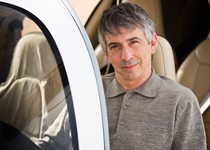Fly Well: Don’t let the lunatics run the asylum
You can’t be too careful…can you?
 Under current rules,a third class medical exam is performed every two or five years and, in between, we all self-certify every time we fly. I have grounded myself when physical illness or stress suggested punching a hole in the sky was a bad idea. And I strongly support moves to reform medical certification—as long as pilots commit to learning more about their health and staying well. AOPA and others have plans to support aviators in this endeavor.
Under current rules,a third class medical exam is performed every two or five years and, in between, we all self-certify every time we fly. I have grounded myself when physical illness or stress suggested punching a hole in the sky was a bad idea. And I strongly support moves to reform medical certification—as long as pilots commit to learning more about their health and staying well. AOPA and others have plans to support aviators in this endeavor.
Some of those against reform say a medical helps keep the flying public safe. So let’s separate fact from fantasy and allow me to conduct a tongue-in-cheek exercise inspired by recent efforts to derail third class medical reform. Let’s construct the ideal model to mitigate every conceivable risk, medical and otherwise, for passengers aboard commercial airliners to ensure they reach their destination safely. On average, short- or medium-haul aircraft have around 120 passenger seats; longer-range airplanes have around 250. For argument’s sake, let’s assume a median of 200 seats per flight.
We obviously have to sacrifice two seats for a second crew on longer flights and maybe another four seats for relief flight attendants.
Given the terrorist threat that pilots potentially pose, having some experts on human behavior on board who could constantly review pilots’ actions would be eminently sensible, so let’s pop those clever people in some comfy seats.
It is common practice to ask the flight crew to eat different meals just in case one develops food poisoning. I think it would show a very reasonable level of caution to have a couple of food tasters on board, just as they did in days of old to ensure the king was not murdered. And in truth, it would be best if each meal were examined by a team of brilliant individuals to ensure that the meal was fat free, salt free, gluten free, and poison free. I think a food scientist and a dietitian or two, bacteriologist, chemist, and biologist would be about right.
Pilots need to be fit and in top physical shape to command an aircraft, so it is only natural that there should be a sophisticated and diverse team of specialists on board to check the crew’s blood pressure, heart health, hearing, and every other physical system that could go awry in flight. Because medicine is an imprecise science, we need second opinions for all these mavens. As modern health care provides the means to confirm one’s diagnosis with sophisticated laboratory tests, we also will need technicians and equipment. If the pilot in command develops some chest pain at Flight Level 350, is it a heart attack or just indigestion? One cannot be too careful, after all.
Continuing this whimsical drill, shouldn’t every pilot undergo stringent evaluation at several points during a flight? For instance, why not have a neuropsychologist administer a Beck Depression Inventory, a quality of sleep test, and maybe some other tests before flying an ILS approach in instrument meteorological conditions? And providing pilots with access to psychiatric services during flight could head off potential issues. Psychiatrists themselves can have neuroses or psychoses, so we better double up in that department.
Of course, having an air marshal on board makes a lot of sense. Actually, we should have two air marshals just in case one is incapacitated, is in the toilet, or falls asleep during a crisis. And on long flights we obviously have to double that to prevent these brave folks going over their allotted duty time. Hmmm, four seats there. Given that their weapons may malfunction, we should be prudent and ensure a qualified gunsmith is around. Two actually, just in case both officers’ sidearms develop synchronous squawks.
Years ago, Virgin Atlantic Airways used to offer a massage to its upper-class customers, and given how much stress everyone is under these days, wouldn’t it be splendid to have a couple of masseurs on board dishing out back rubs?
Look what we have achieved! By prudent and thoughtful planning we have protected passengers from every conceivable issue. Here we find the ultimate protection—there are no seats left for any passengers, which will ensure that none of them are killed in a preventable situation.
Please forgive my sarcasm, but life is dangerous. We take risks and mitigate them with reasonable measures while relishing being alive. That is what pilots do. So please, keep diligent to ensure the lunatics do not run the asylum and, to quote my favorite bumper sticker, “Nothing political is correct.”
Email [email protected]
Dr. Jonathan Sackier answers AOPA members’ medical questions through the AOPA Pilot Protection Services program.



